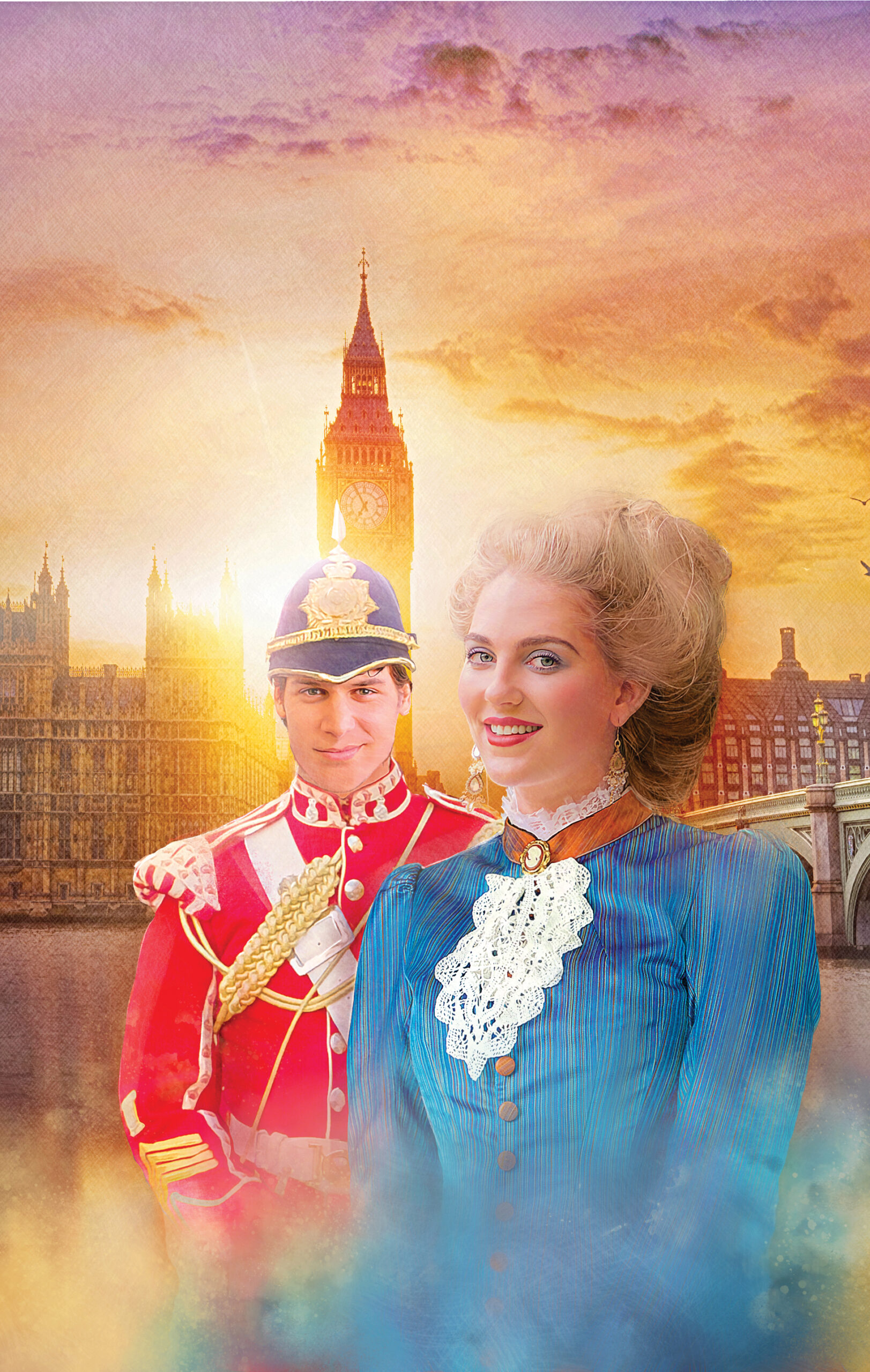The Schoolmaster’s Daughter — Episode 06

The Schoolmaster's Daughter by Suzan Lindsay Randle
« Previous Post- 3. The Schoolmaster’s Daughter — Episode 03
- 4. The Schoolmaster’s Daughter — Episode 04
- 5. The Schoolmaster’s Daughter — Episode 05
- 6. The Schoolmaster’s Daughter — Episode 06
- 7. The Schoolmaster’s Daughter — Episode 07
- 8. The Schoolmaster’s Daughter — Episode 08
- 9. The Schoolmaster’s Daughter — Episode 09
FULLY recovered from her cold, sixteen-year-old Edith was delighted to go with Louisa to collect the money for the Women’s Jubilee Offering.
When their mother died, their father’s unmarried older sister, Charlotte, had moved in and taken over the running of the household. And run it she did, like clockwork, leaving little room for the girls to take responsibility.
So now that they were becoming young ladies, first Louisa, then Edith, had started to become more involved with the church and local charitable societies to fill their time.
Reaching Market Street, they decided to start on the opposite side, work their way along to the haberdashery, cross back over and then visit the remaining shops.
“That way, we won’t have far to walk home with the money we’ve collected,” Louisa said. “I don’t imagine anyone would try to rob us, but I’d rather not take too great a chance.”
Edith agreed that it was a good plan.
“But if you really want to get home quickly,” she added as they stood on the pavement watching the traffic, “you should get one of those.”
Alongside the horse-drawn carriages and carts a man was riding one of the new safety bicycles with a rather nervous expression on his face.
Louisa laughed, then she handed Edith a small notebook in which she was to write down the name of every woman who made a contribution.
“Please make sure to record the exact amount that each person gives or pledges next to their name,” Louisa reminded her. “Also whether we’ve received the money today or they are to pay it in at the bank.”
Edith shot her a look that said she didn’t need to be told.
“You should be the schoolteacher instead of Papa!”
By the time they reached Knibb’s Bakery the leather purse attached to Louisa’s belt was heavy with coins.
“So far we’ve amassed two pounds, six shillings and threepence,” Edith announced.
Louisa was impressed.
“You have kept a running total? Well done, Edith, dear. You’ll soon be able to take over the household accounts from Aunt Charlotte.”
The younger sister screwed up her face.
“I’d rather not.”
As the sisters entered the shop they found Mrs Knibb positioned behind the counter.
The blue bow on the white cap that covered her bun matched the large bow at the throat of her ample blouse.
A man Louisa had never seen before was stacking bags of flour on the floor. He was coatless, with a red neckerchief below his side whiskers.
Was this the man George had mentioned or just someone making a delivery? She thought he had mean-looking little eyes above his knobbly purple nose.
Then she saw him wink at Mrs Knibb, who gave a girlish giggle.
“Oh, Sam . . . Mr Cronk,” Mrs Knibb said.
“Has George Jevcott returned yet?”
Louisa felt her stomach lurch at the mention of his name, although she wasn’t sure why.
Was it because she didn’t want him to lose his apprenticeship, as he feared he might? Or was there some other reason?
Samuel Cronk wiped a hand across his perspiring forehead as he straightened up.
“No, he ain’t, and he’s been gone a good three hours. Probably dawdling as usual.” Mrs Knibb tutted.
“I don’t know what he thinks he’s playing at. We give him a good opportunity and this is how he repays us.”
“You leave him to me, Mrs Knibb. I’ll have a word with Master Jevcott when he gets back.”
He gave a grin.
“There’s a lot of baking tins to be cleaned before we can use them again.”
“Thank you, Mr Cronk. That will be most satisfactory.”
As Samuel Cronk departed in the direction of the bakehouse, the baker’s wife noticed Louisa and Edith silently waiting.
“Good morning, ladies. Ah! I expect you’ve come to collect my generous contribution to the Jubilee fund. I have it here ready for you.”
Louisa forced a grateful smile as Edith wrote down the amount beside her name in the notebook.
“Poor George Jevcott,” she remarked as they left the shop. “It seems he has no friends in this place.”
* * * *
The members of the Townswomen’s Committee were encouraged to spend time each week visiting the sick and the elderly for whom they raised funds. It was a duty that Mrs Townsend, the doctor’s wife, took more seriously than most.
“By visiting and talking to people we can bring them comfort even in their darkest of hours,” she said to Louisa as they walked through the town the following morning. “I’m sure it’s something you’ll do very well. Sometimes you just need to listen to their troubles and pray with them. Others may need more practical help such as a warm blanket or a bowl of soup, which we can provide.
“Unfortunately, the bigger issue – of clean water and sanitation for all – isn’t so easily fixed. At least, the men on the Town Council seem to make it more complicated. Perhaps your father can knock some sense into them.”
They passed the last of the shops and crossed the street by a public house. Further down was a factory that made nails and employed several hundred of the town’s inhabitants.
Behind this was a warren of narrow streets with houses packed tightly together.
Mrs Townsend knocked at the first door. They heard the baby’s cry before the mother, a young woman with tired eyes, bid them enter.
Two more small children played on the floor, clutching at their mother’s skirts as she passed beneath the wet washing strung overhead.
“Good morning, Sarah,” Mrs Townsend said. “How’s the little one doing?”
A bout of coughing shook the tiny bundle that Sarah held against her breast, giving them the answer.
The next two calls they made were to elderly people who looked as though they would barely make it through the winter.





